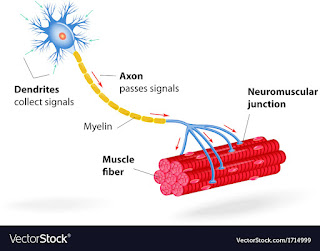The benefits of yoga as an adjuvant to medical treatment for migraine
Chronic
migraine is a complication of episodic migraines. Each year 25 percent of
patients with episodic migraines develop chronic migraines. Chronic migraine is
a disabling complication that leads to loss of working hours and reduced
productivity (1).
According to a study, preventive treatment was discontinued or switched at least once by 26.4 percent of episodic migraineurs and by 53.3 percent of chronic migraineurs. Of the 382 patients who gave reasons for discontinuation or switching treatment, over 70 percent selected lack of efficacy and tolerability/safety (2).
Despite taking acute and/or preventive
treatments, 29.2 percent of episodic cases and 73.2 percent of chronic ones had
moderate to severe headaches related to disability (2).
Stress is a common trigger for migraines, playing a role in almost 70 percent of cases (3). It also increases the risk of turning episodic migraines into chronic migraines.
Body mind therapies play a role in the
response to stress. Yoga is a body-mind practice that involves flow of movement
with breath, physical postures (asanas), breathing techniques and
meditation-relaxation. Various small studies have suggested that yoga can help
as a complementary or adjuvant therapy to help reduce the frequency of
headaches, pain intensity and headache-related disability (3). For example,
Kisan et al researched the effects of yoga for this purpose. The researchers
recruited 60 patients who were randomly assigned to either conventional medical
care alone or yoga with conventional medical care.
In the group that received yoga, the practice
was performed 5 days a week. All the patients were followed for six weeks.
Clinical assessments and autonomic function tests were completed at baseline
and at the end of the intervention. The results of this six-week study showed
significant reduction in headache frequency, average pain intensity and
headache-related disability in both groups, but the one that received yoga had
even better outcomes than the one that only received conventional medical
therapy. The yoga group had more reduction of sympathetic tone and increased
vagal tone. The study was not blinded.
Another
small study done by Latha et al also evaluated the effects of yoga as
complementary therapy for migraines and tension headaches. Twenty patients were
randomly assigned to receive 4 months of yoga therapy or no yoga. There was
significant reduction of headaches and medication use in the group that did the
yoga sessions.
One of the most recent studies was done by
Kumar et al (4): the CONTAIN study was published in the journal Neurology in 2020.
The purpose of this study was to evaluate the effects of yoga as an adjuvant
therapy to conventional medical management on clinical outcomes. Between April
2017 and August 2018, 160 patients between the ages of 18 and 50 with episodic
migraine were recruited and randomly assigned to two groups. A blinded assessor
recorded the outcomes, and 114 patients completed the study.
The results showed that yoga added to medical
therapy was superior to medical therapy alone. The group that received yoga
had decreased frequency and intensity of headaches and less impact and disability. The
results are consistent with previous research studies done on the benefits of
yoga as adjuvant therapy.
It is
important to remember that yoga is a mind-body practice that requires the input
of a certified instructor or therapist to make it safe and effective.
References:
1) 1) https://www.ncbi.nlm.nih.gov/pmc/articles/PMC8728549/
2) 2) https://pubmed.ncbi.nlm.nih.gov/28984356/
3) 3) https://www.ncbi.nlm.nih.gov/pmc/articles/PMC9015090/
4) 4) https://pubmed.ncbi.nlm.nih.gov/32376640/




Comments
Post a Comment
Thank you for commenting.